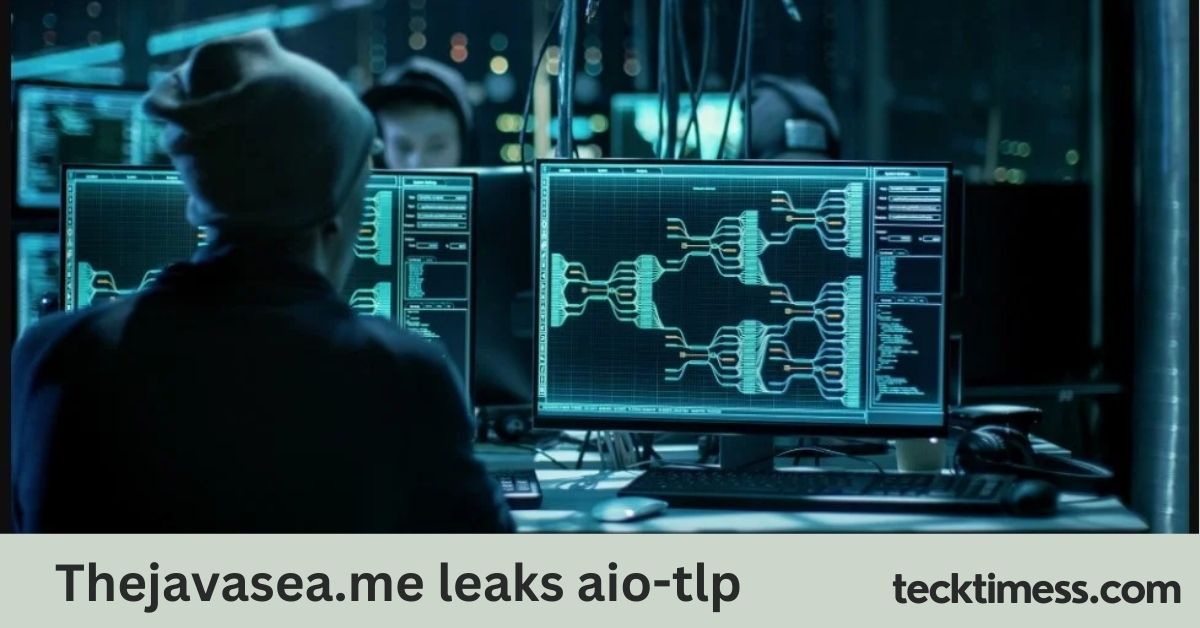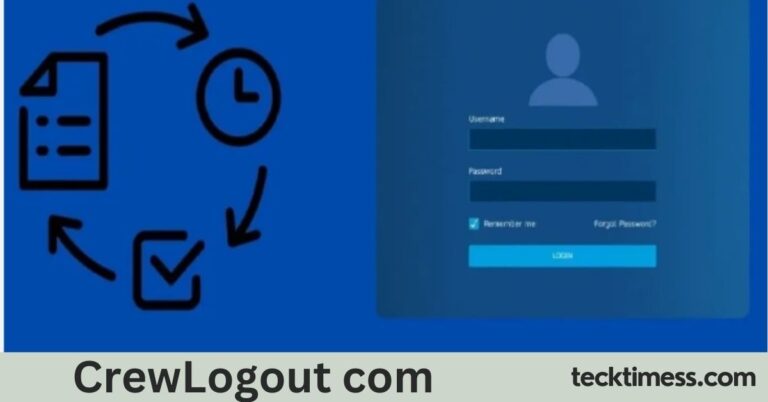In recent times, the incident involving Thejavasea.me leaks aio-tlp has raised significant concerns about digital privacy and the security of sensitive information. With the ever-growing reliance on the internet for both personal and professional purposes, the risks associated with data breaches have never been more pronounced. This article delves into the specifics of the “thejavasea.me leaks aio-tlp,” exploring what it means, the broader implications for digital security, and measures you can take to protect yourself.
What is Thejavasea.me leaks aio-tlp?
Thejavasea.me leaks aio-tlp refers to a notable breach that has exposed sensitive information on the website thejavasea.me. “AIO-TLP” is often associated with “All In One – Traffic Light Protocol,” which is a set of designations used to ensure that sensitive information is shared only with the appropriate audience. When these designations are compromised, as in the case of the leaks on thejavasea.me, it results in unauthorized access to confidential data. This incident has spotlighted the vulnerabilities in digital data management and the urgent need for more robust cybersecurity measures.
Why Are Data Leaks Like Thejavasea.me leaks aio-tlp a Big Deal?
Data leaks, such as the one associated with “thejavasea.me leaks aio-tlp,” can have far-reaching consequences. When sensitive data is exposed:
- Identity Theft: Personal information like names, addresses, and social security numbers can be stolen and used for identity theft.
- Financial Loss: Financial data, including credit card numbers or banking details, can lead to unauthorized transactions and financial losses.
- Reputation Damage: Individuals and organizations can suffer significant reputational damage, losing the trust of customers, partners, or the general public.
- Legal Consequences: Organizations may face legal penalties for failing to protect sensitive information adequately.
The Digital Age and the Rise of Data Breaches
The digital age has made it easier for information to be stored, shared, and accessed online. However, this convenience also brings a heightened risk of data breaches. Cybercriminals are constantly looking for vulnerabilities in websites, servers, and databases. The Thejavasea.me leaks aio-tlp incident underscores how these breaches are becoming more sophisticated and widespread.
Factors Contributing to Data Breaches
- Weak Passwords and Security Protocols: Many breaches occur because of weak passwords and inadequate security protocols that are easily exploited by hackers.
- Outdated Software: Websites and systems that do not regularly update their software can be vulnerable to attacks that exploit old security flaws.
- Human Error: Often, breaches are the result of simple human error, such as accidentally sending sensitive information to the wrong recipient or falling for a phishing scam.
- Insider Threats: Employees or other insiders with access to sensitive information can intentionally or unintentionally cause data breaches.
Understanding the Traffic Light Protocol (TLP) and Its Significance
The Traffic Light Protocol (TLP) is a system used to classify the sensitivity of information. It uses four colors—Red, Amber, Green, and White—to denote different levels of sensitivity:
- Red: Highly sensitive information, meant only for specific individuals.
- Amber: Information that should be restricted to specific organizations.
- Green: Information that can be shared within a specific community.
- White: Information that is safe for public disclosure.
In the context of “thejavasea.me leaks aio-tlp,” a breach of the AIO-TLP protocol means that data meant to be restricted (Red, Amber) may have been improperly exposed, creating a serious security threat.
How to Protect Yourself from Data Breaches
In light of incidents like “thejavasea.me leaks aio-tlp,” it’s crucial for individuals and organizations to take proactive steps to safeguard their data:
For Individuals:
- Use Strong, Unique Passwords: Avoid common passwords and use a unique password for each account. Consider using a password manager to keep track of them.
- Enable Two-Factor Authentication (2FA): This adds an extra layer of security by requiring a second form of verification, such as a text message or authentication app.
- Regularly Monitor Your Accounts: Keep an eye on bank statements, credit reports, and online accounts for any suspicious activity.
- Be Wary of Phishing Scams: Be cautious when clicking on links or opening attachments in emails from unknown senders.
For Organizations:
- Regularly Update Software and Systems: Ensure all software is up-to-date to protect against vulnerabilities.
- Implement Strong Access Controls: Limit access to sensitive data to only those who need it and implement strict access controls.
- Conduct Regular Security Audits: Regularly review and test security systems to identify and address potential vulnerabilities.
- Train Employees on Cybersecurity Best Practices: Educate staff about the importance of cybersecurity and how to recognize threats.
Analyzing the Broader Implications of Thejavasea.me leaks aio-tlp
The Thejavasea.me leaks aio-tlp incident is more than just a wake-up call for individuals and businesses alike; it is a stark reminder of the importance of data privacy and the risks associated with the digital age. As more of our lives move online, from banking and shopping to social interactions, protecting our digital footprint becomes increasingly crucial.
The Need for Robust Cybersecurity Frameworks
The incident calls for a reassessment of existing cybersecurity frameworks. It’s clear that traditional methods are not enough to combat the sophisticated tactics employed by modern cybercriminals. New technologies such as artificial intelligence (AI) and machine learning (ML) are being leveraged to enhance cybersecurity measures, providing real-time threat detection and automated responses to potential breaches.
Ethical Considerations in Data Management
Beyond technological solutions, there are ethical considerations. Organizations must prioritize data ethics, ensuring that they not only comply with regulations but also respect the privacy and security of their users. Transparency in data practices, consent-based data collection, and user empowerment are key ethical practices that should be adopted.
Conclusion
The Thejavasea.me leaks aio-tlp incident underscores the urgent need for robust cybersecurity measures and a greater awareness of digital privacy. As we navigate the complexities of the digital age, it’s imperative that both individuals and organizations remain vigilant, adopt best practices, and continuously strive to protect sensitive information. By understanding the risks and implementing proactive measures, we can better safeguard our digital futures.
FAQs
What is Thejavasea.me leaks aio-tlp?
Thejavasea.me leaks aio-tlp refers to a significant data breach involving the exposure of sensitive information on thejavasea.me website, linked to the misuse of the All In One – Traffic Light Protocol (AIO-TLP).
Why is data protection important?
Data protection is crucial to prevent identity theft, financial loss, reputational damage, and legal consequences that can arise from data breaches.
How can I protect my data online?
You can protect your data by using strong, unique passwords, enabling two-factor authentication, monitoring your accounts regularly, and being cautious of phishing scams.
What is the Traffic Light Protocol (TLP)?
The Traffic Light Protocol (TLP) is a set of designations (Red, Amber, Green, White) used to classify the sensitivity of information and ensure it is shared appropriately.
How do data breaches affect organizations?
Data breaches can result in financial loss, legal penalties, reputational damage, and loss of customer trust for organizations.
What role do individuals play in preventing data breaches?
Individuals play a critical role by adopting safe online practices, such as using strong passwords and recognizing phishing scams, to protect their personal information.
Are there legal implications for data breaches?
Yes, organizations that fail to protect sensitive data adequately may face legal penalties, including fines and lawsuits, depending on the jurisdiction and regulations in place.





